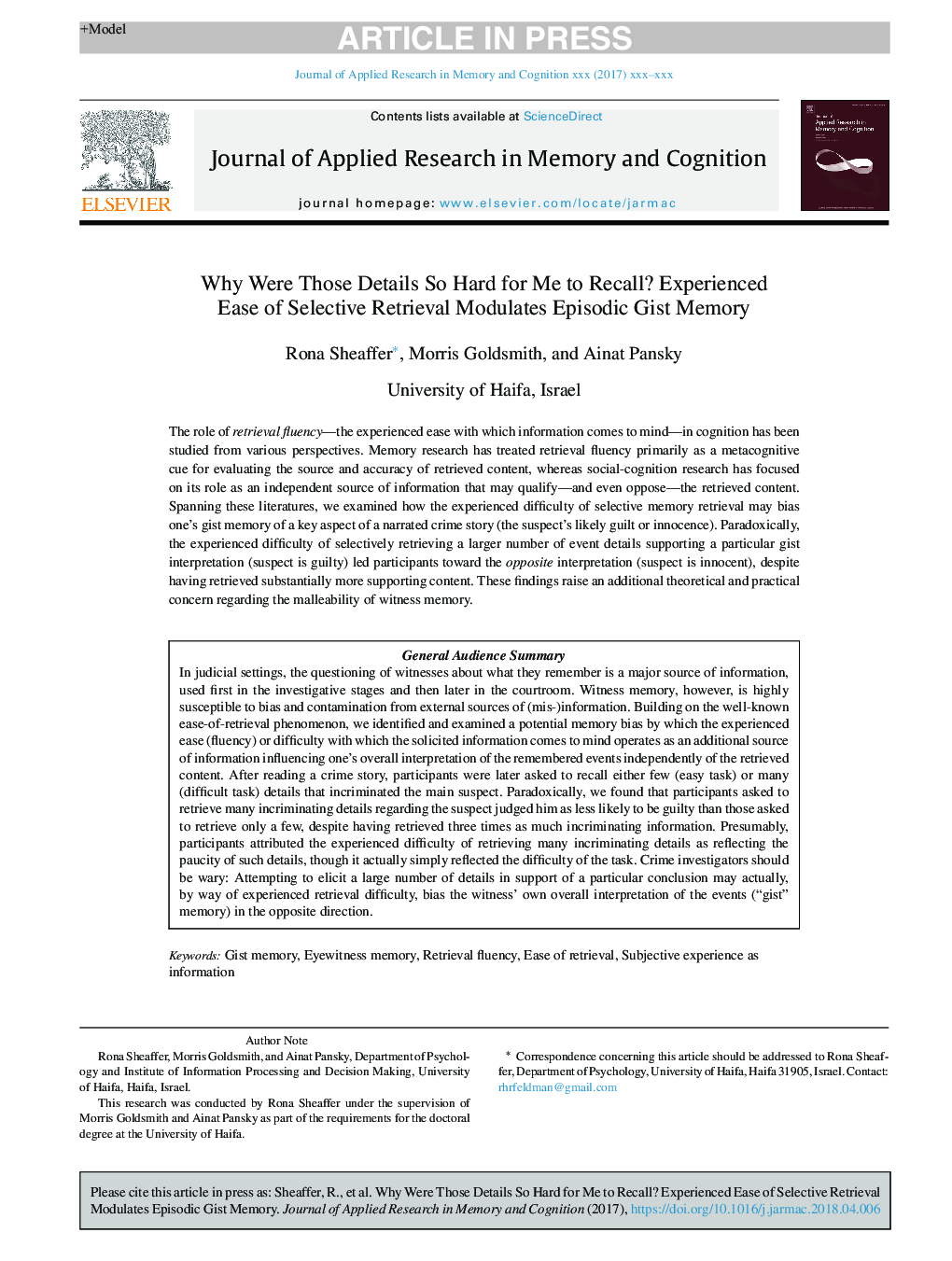| Article ID | Journal | Published Year | Pages | File Type |
|---|---|---|---|---|
| 10153249 | Journal of Applied Research in Memory and Cognition | 2018 | 8 Pages |
Abstract
The role of retrieval fluency-the experienced ease with which information comes to mind-in cognition has been studied from various perspectives. Memory research has treated retrieval fluency primarily as a metacognitive cue for evaluating the source and accuracy of retrieved content, whereas social-cognition research has focused on its role as an independent source of information that may qualify-and even oppose-the retrieved content. Spanning these literatures, we examined how the experienced difficulty of selective memory retrieval may bias one's gist memory of a key aspect of a narrated crime story (the suspect's likely guilt or innocence). Paradoxically, the experienced difficulty of selectively retrieving a larger number of event details supporting a particular gist interpretation (suspect is guilty) led participants toward the opposite interpretation (suspect is innocent), despite having retrieved substantially more supporting content. These findings raise an additional theoretical and practical concern regarding the malleability of witness memory.
Related Topics
Social Sciences and Humanities
Psychology
Applied Psychology
Authors
Rona Sheaffer, Morris Goldsmith, Ainat Pansky,
